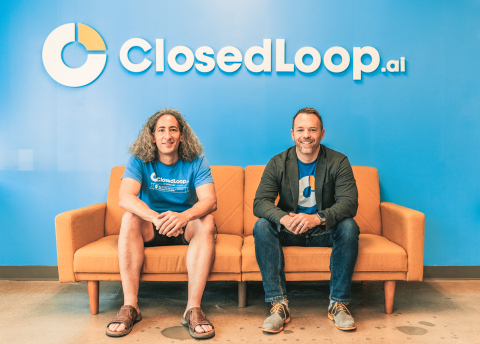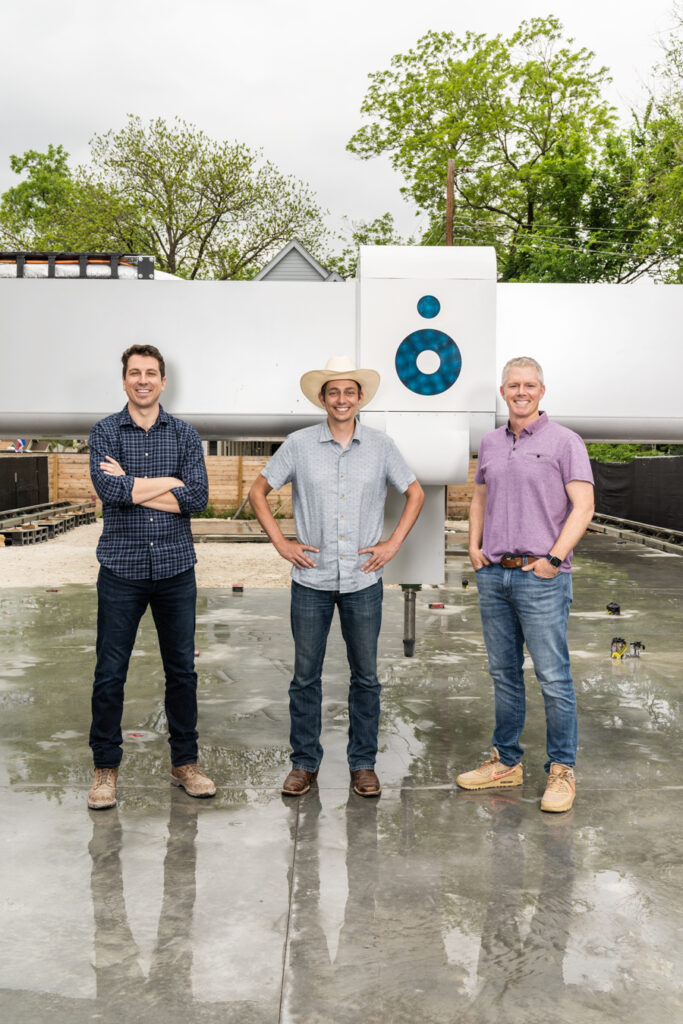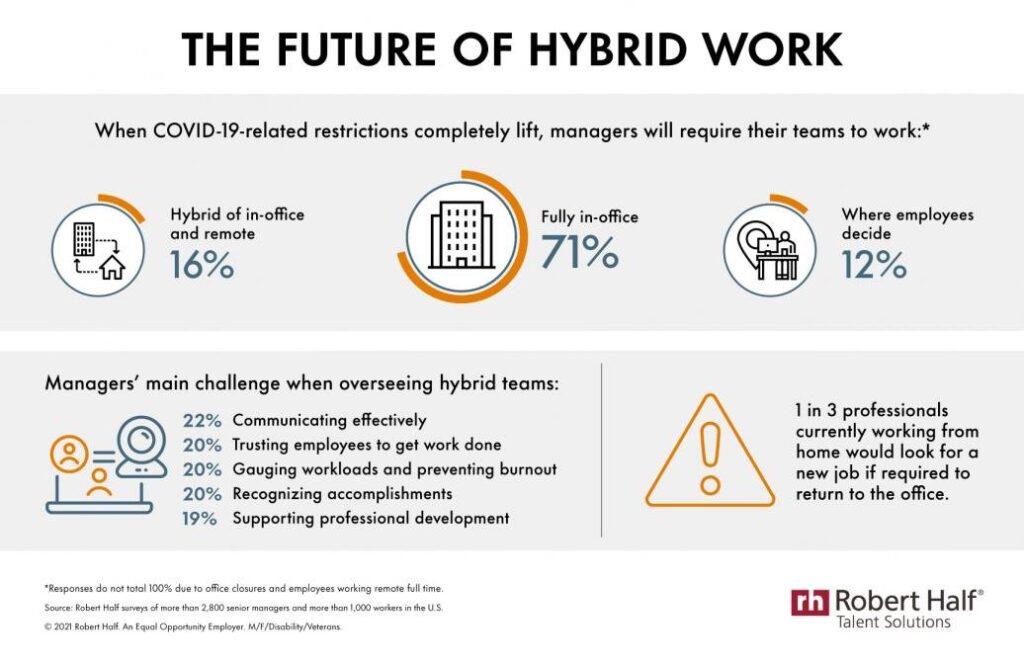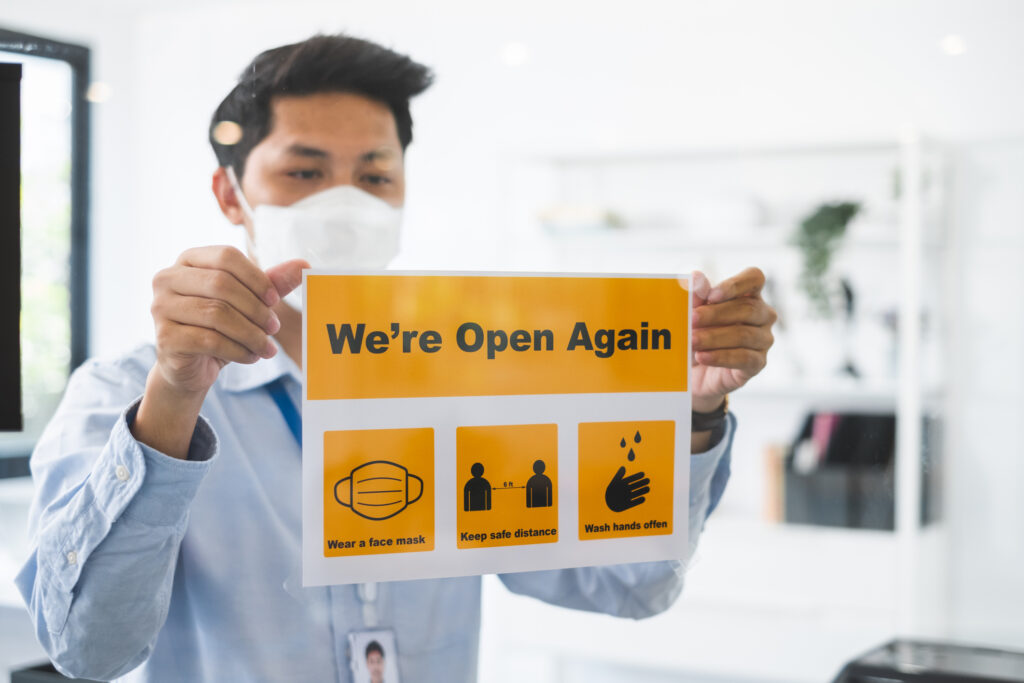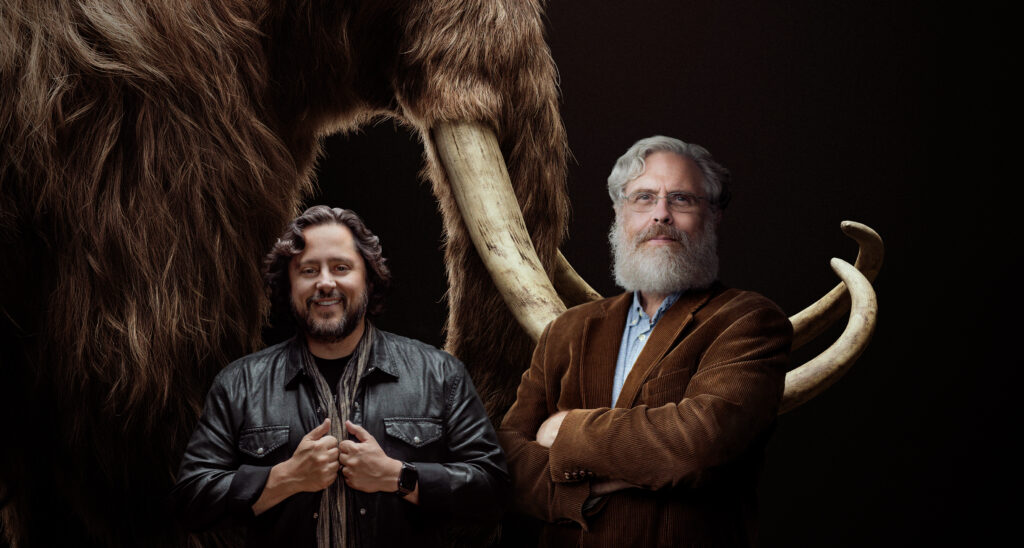
Thousands of years ago, amid a warming climate, the woolly mammoth vanished into extinction.
Now, serial entrepreneur Ben Lamm is teaming up with world-renowned geneticist and serial biotech entrepreneur George Church, Ph.D., to bring the woolly mammoth back to life.
That’s the mission behind Colossal, a bioscience and genetics company co-founded by Church and Lamm and a handful of other entrepreneurs that launched Monday.
And they are not stopping with the woolly mammoth. They plan to apply genetic engineering to save other species from extinction or to bring back to life those that have already died off.
Lamm, an Austin native who splits his time between Austin and Dallas, has a track record of tackling big problems. Lamm, 39, most recently co-founded Hypergiant Technologies, an artificial intelligence company based in Austin. In May, he stepped aside as CEO to focus on his new venture. Previously, Lamm founded and served as CEO of Conversable acquired by LivePerson and co-founder and CEO of Chaotic Moon Studios acquired by Accenture and Team Chaos, acquired by Zynga.
Colossal plans to use CRISPR technology to apply advanced gene-editing techniques to restore the woolly mammoth to the Arctic tundra. The company is based out of Austin, Dallas, and Boston. It has 19 employees. Software operations reside in Austin. Hardware, wetware, and genetic rescue and species restoration departments are in Dallas. And the research lab is in Boston.
“Never before has humanity been able to harness the power of this technology to rebuild ecosystems, heal our Earth and preserve its future through the repopulation of extinct animals,” Lamm, CEO and Co-Founder of Colossal, said in a news release. “In addition to bringing back ancient extinct species like the woolly mammoth, we will be able to leverage our technologies to help preserve critically endangered species that are on the verge of extinction and restore animals where humankind had a hand in their demise.”
The problem is urgent. Up to 1 million: species are threatened with extinction, many within decades, according to a United Nations 2019 report on Nature’s Dangerous Decline ‘Unprecedented’; Species Extinction Rates ‘Accelerating’. As animals disappear, ecosystems can collapse leading to tragic consequences. Colossal is focused on restoring animal populations to protect habitats and create healthier ecosystems.
“Colossal leverages the exponential progress made in technologies for reading and writing DNA and applies it to iconic ecological conservation and carbon sequestration issues,” Colossal Co-Founder Church said in a news release.
Restoring the woolly mammoth will lead to the restoration of the Arctic Tundra, according to Colossal.
“Some researchers have argued that woolly mammoths were ecosystem engineers, maintaining the grasslands by breaking up moss, knocking down trees and providing fertilizer with their droppings,” according to an article in the New York Times on the company’s launch.
Church, who is the Robert Winthrop Professor of Genetics at Harvard Medical School (HMS) and a Core Faculty member at the Wyss Institute for Biologically Inspired Engineering at Harvard University, has pioneered several breakthroughs that have progressed the field of genomics, including CRISPR.
“A former researcher in Dr. Church’s lab, Eriona Hysolli, will oversee the new company’s efforts to edit elephant DNA, adding genes for mammoth traits like dense hair and thick fat for withstanding cold,” according to the New York Times. “The researchers hope to produce embryos of these mammoth-like elephants in a few years, and ultimately produce entire populations of the animals.”
The elephant-mammoth hybrid will be genetically engineered with traits to help it survive in the Arctic.
“Technologies discovered in pursuit of this grand vision – a living, walking proxy of a woolly mammoth – could create very significant opportunities in conservation and beyond, not least of which include inspiring public interest in STEM, prompting timely discussions in bioethics, and raising awareness of the vital importance of biodiversity,” Church said.
Colossal is backed by $15 million in seed-stage funding led by Thomas Tull with participation from Draper Associates, Animal Capital, At One Ventures, Jazz Ventures, Bold Capital, Global Space Ventures, Climate Capital, Winklevoss Capital, Liquid2 Ventures, Capital Factory, Tony Robbins and First Light Capital.
Lamm will serve as Colossal’s CEO, Andrew Busey will serve as Chief Product Officer, and is also a co-founder. Kent Wakeford is also co-founder and Chief Operating Officer, Brian Beard is co-founder and Chief Legal Officer, and Peter Phillips is co-founder and Chief Business Officer and Head of Biological Sciences Hysolli, Ph.D., a former postdoctoral fellow in the Church Lab from 2015 to 2021.
Colossal has licensed
the technology from Harvard to commercialize the research from the Church Lab,
in a range of defined fields, excluding use in humans.




